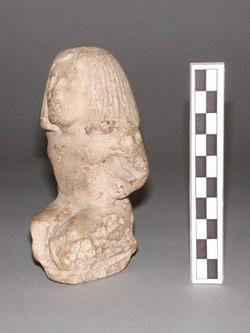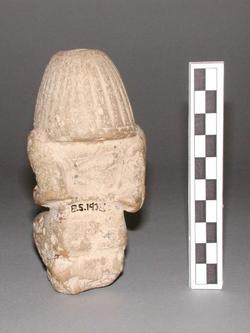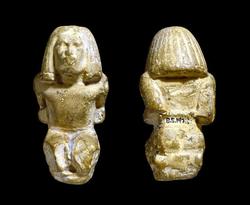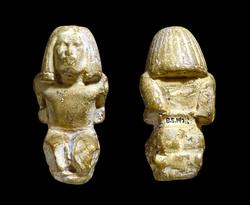Current Location: Gallery 20
Titles
Limestone Figure
Entities
Categories
Description
The arms are missing and there is some damage to the front of the legs. Parts of the surface are worn.
This small stone figure represents one of the traditional enemies of Egypt. The long hair resting on the shoulders identifies the subject as a Libyan, who has been captured and bound. The hands are tied behind the back and the subject kneels. The feet are twisted in a manner that suggests the ankles are broken.
At the top of the head is a small tenon (dowel hole), which suggests that the figure formed part of a larger object, perhaps a chair. Such images regularly appear on statues, furniture and thresholds of buildings. Similar images can also be found on temple reliefs.
The ancient Egyptians traditionally believed that there were four races: Nubians, Libyans, Asiatics and themselves. Collectively foreigners were believed to threaten the order of the Egyptian world. They often appear as bound captives on the base of thrones and funerary cases or even on tiles, where they would be literally trampled under-foot. Pharaohs are often shown smiting their foreign enemies whilst holding them by their hair.
Foreigners were, however, an important element of Egyptian society from Dynasty 6 (about 2300-2150 BC) onwards. At this period Libyans and Nubians joined the army as mercenaries. During Dynasty 26 (664-525 BC) Greeks were allowed to settle at Naukratis in the Delta; in this trading post they established Greek sanctuaries and worshipped Greek gods. In the sixth century BC Carians from southwest Asia Minor (Turkey) settled at Memphis and lived amongst Egyptians.
Several foreign dynasties ruled Egypt, namely Hyksos (1650-1550 BC), Libyans (1069-664 BC), Kushites from modern-day Sudan (747-656 BC), Persians (525-404 BC and 343-332 BC), and Macedonian Greeks (332-30 BC). Like the Persians the Romans were non-resident pharaohs, but for a much longer period of time. It is perhaps because of their interest in Egyptian culture that there is an increase in production of images involving foreigners.
Measurements and weight
Height: 11.2 cm
Acquisition and important dates
Method of acquisition: Bought
(1972)
by
Arcade Gallery, London
Dating
3rd Dynasty
Old Kingdom
Circa
-2686
-
Circa
-2613
School or Style
Egyptian
Materials used in production
Limestone
Techniques used in production
Carved
References and bibliographic entries
Identification numbers
Accession number: E.5.1972
Primary reference Number: 63049
Oldadmincategory: SU
Stable URI
Audit data
Created: Saturday 6 August 2011
Updated: Friday 18 July 2025
Last processed: Friday 18 July 2025
Associated departments & institutions
Owner or interested party:
The Fitzwilliam Museum
Associated department:
Antiquities
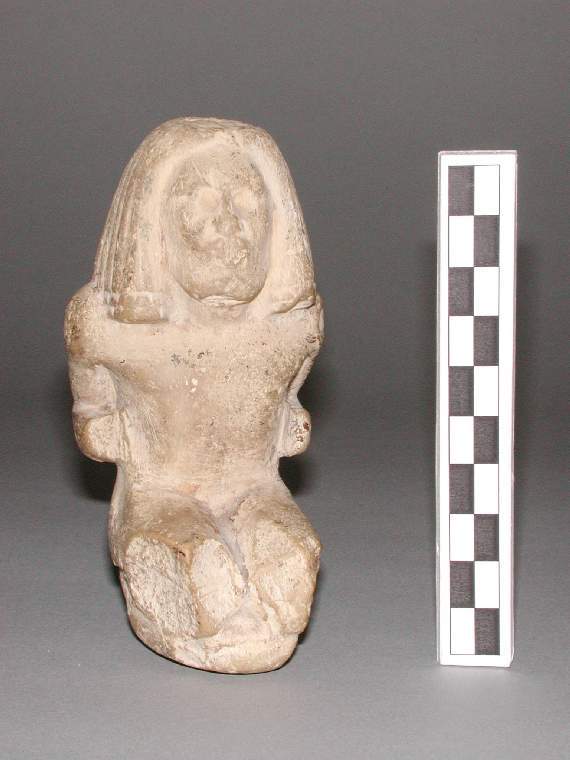
 IIIF Manifest
IIIF Manifest
